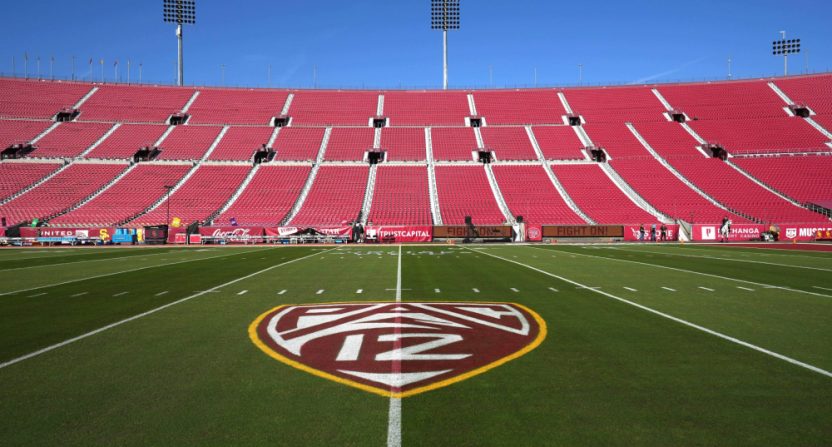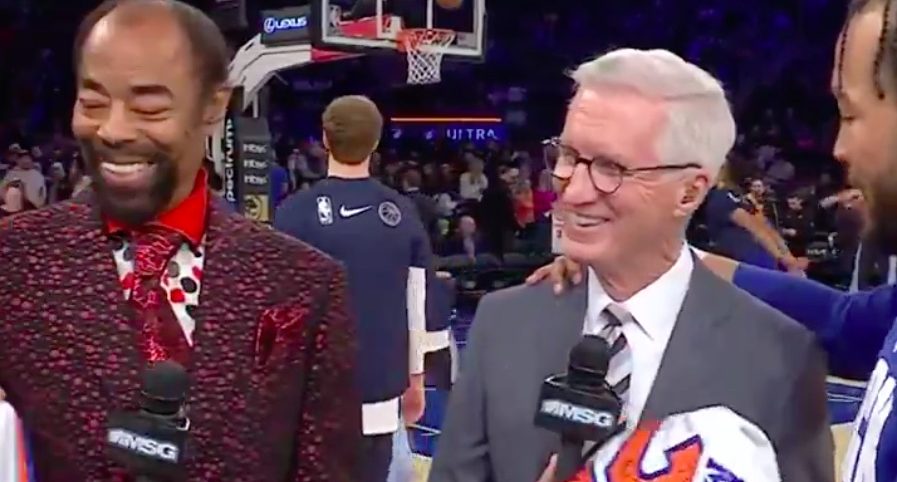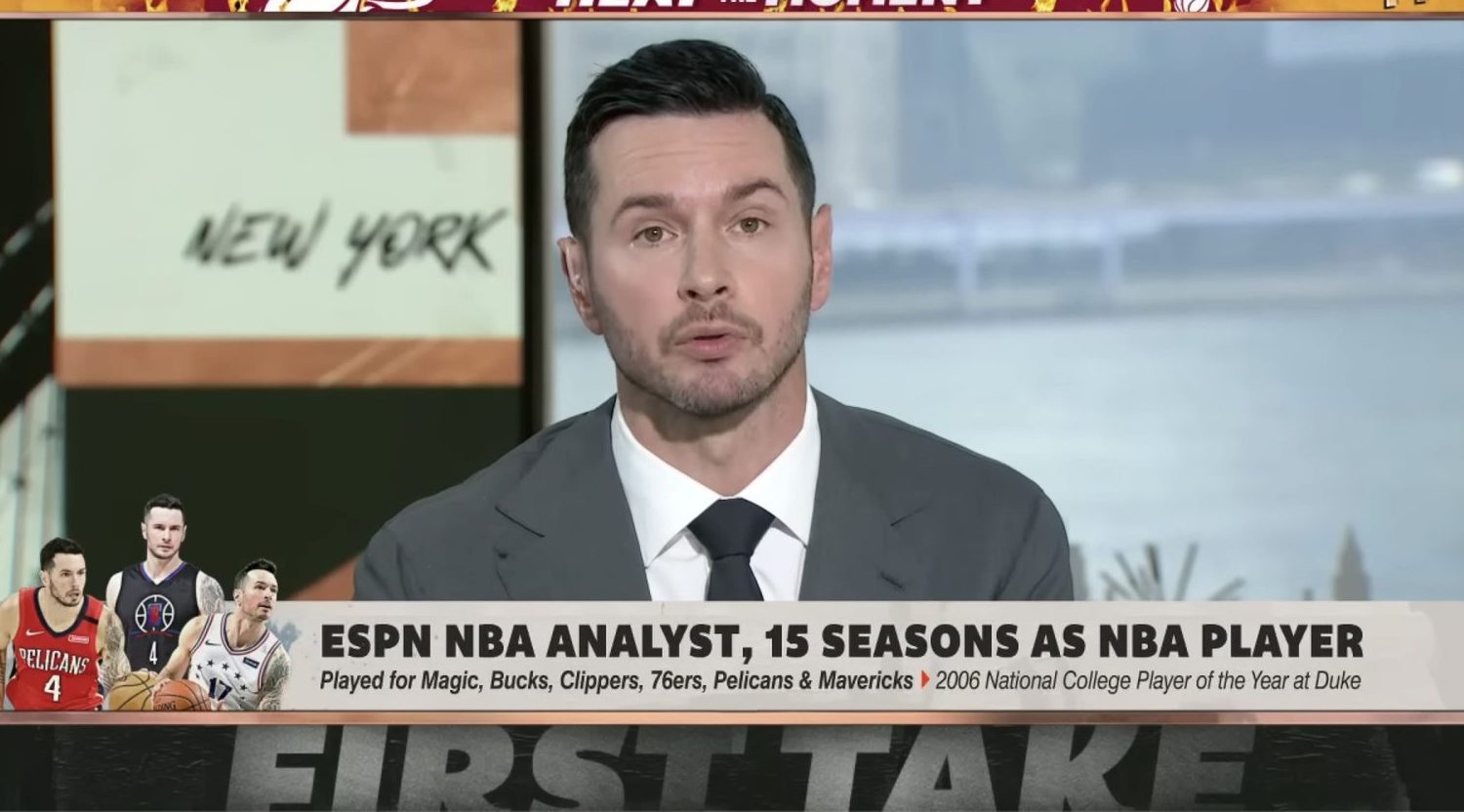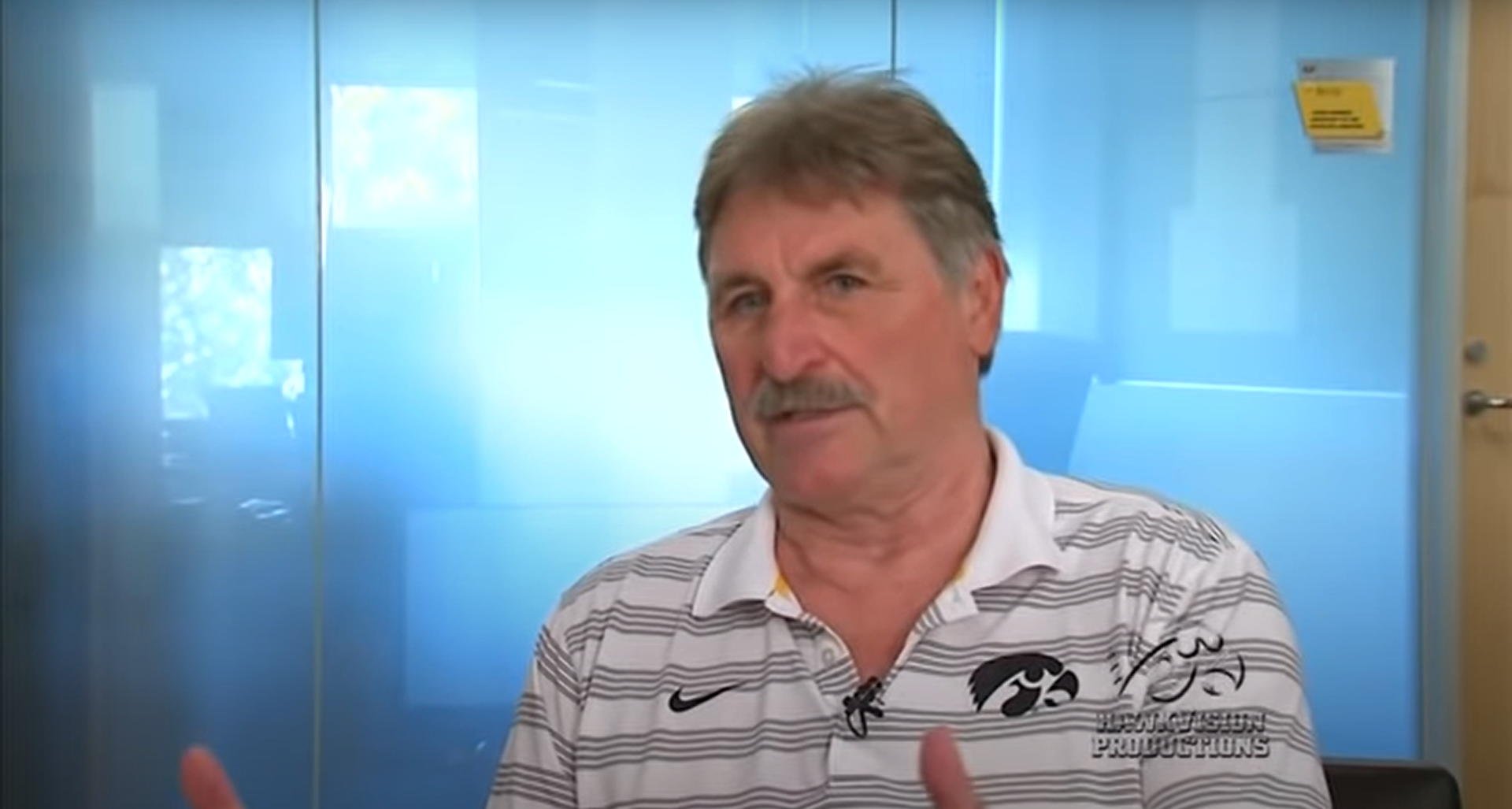A lot of sports and sports business involves prognostication on future events, and that’s understandable, whether it’s about “Who will win the Lakers-Warriors series?” or “What will the Pac-12’s new TV deal look like?” In the sports business realm, though, there’s an interesting middle step between predictions and the actual result, and that’s reporting on the actual stage of negotiations.
That’s somewhat equivalent to an in-game score. But in-game scores are not typically reported as in different states at the same time. That’s a contrast to some sports media topics like that upcoming Pac-12 deal, which ESPN was either out on (at least in terms of Tier 1 rights) or in on as of Wednesday night. The status of ESPN’s current involvement in negotiations with the conference is contingent on whether you believe CBS Sports’ Dennis Dodd or Sports Illustrated’s Ross Dellenger and The Athletic’s Nicole Auerbach:
It appears @espn is out as a @pac12 primary rightsholder. While that was an industry assumption for a while, it takes the No. 1 sports rights leader off the table at a critical time. https://t.co/DpgU0ggou9
— Dennis Dodd (@dennisdoddcbs) May 4, 2023
ESPN remains a bidder for the Pac-12’s Tier 1 rights, a source tells @TheAthletic.
— Nicole Auerbach (@NicoleAuerbach) May 4, 2023
A note from conference meetings in Scottsdale: ESPN remains in negotiations with the Pac-12 for its primary TV package, multiple sources tell @SInow. In fact, the league and network held discussion as recently as today.
— Ross Dellenger (@RossDellenger) May 4, 2023
Here’s more from Dodd’s piece:
What has long been assumed throughout the industry became a reality this week as ESPN appears to be out as an option to take the Pac-12’s primary media rights as the conference continues to seek a new deal, multiple sources tell CBS Sports.
The situation developed at the Fiesta Summit spring meetings this week when Big 12 officials were told by ESPN executives its league was one of three conferences the network would be airing in the future. ESPN currently has Power Five agreements with the Big 12 (new deal begins in 2025), SEC (new deal in 2024) and ACC (existing deal running through 2036). It has other college football deals as well, including one with the AAC that ends in 2030.
…”[This is the] first time publicly [ESPN] said, ‘We’re not doing anything with the Pac-12,'” a Big 12 administrator aware of the exchange told CBS Sports under the condition of anonymity.
Dodd goes on to say that ESPN “may be interested in a smaller package secondary rights [sic] for games specifically in the late-night window,” but emphasizes that his report is on the Tier I games, and later writes “If ESPN is not interested in the Pac-12’s Tier I games—the most-desirable, likely highest-rated contests—there doesn’t appear to be an obvious brand-name suitor for the league.” So this isn’t a case of gray areas between reports; Auerbach and Dellenger are reporting something that specifically contradicts Dodd’s piece.
And while this is a Schrödinger’s cat situation where the actual state isn’t known until observed, it may not wind up being able to be proved in favor of Dodd. Even if the Pac-12 does not wind up with a Tier I deal with ESPN, Auerbach and Dellenger are only reporting that they’re still in talks there at the present moment. The only way to refute that would be if someone from ESPN said “No, we’re not.” However, if the conference does get a Tier I deal with ESPN after Dodd wrote this piece the other way, that doesn’t look great for him (even with the “appears to be out” hedging). It’s certainly not actionable, though, and even if it was, he could probably try a “rhetorical hyperbole” defense. (It is also possible that an “out” network could come back in, though. Even napalmed bridges can be rebuilt.)
It should be noted that even Dodd’s “What has long been assumed throughout the industry” opener deserves some questions, though. Perhaps that’s been assumed by his particular sources, but ESPN involvement with the Pac-12 at a Tier 1 level has not really been ruled out by most. That’s a contrast to the likes of CBS, WBD, Fox, the CW, and Ion, all of which have had significantly more public cold water dumped on the idea of a Pac-12 deal with them. That’s a big part of why Dodd’s report here was notable in the first place, and that makes it interesting to see it get its own cold-water bath from other national reporters.
The latest
Of course, the refutations here come from the Pac-12 side, so they have their own bias as well. And we really won’t know if there will be an ESPN deal with the Pac-12 until those media deals are actually announced, which now isn’t expected until “late spring, early summer.” And we may never know if ESPN was actually out at this point or not, unless someone from ESPN speaks up. But it’s certainly interesting to see the Pac-12 media discussions, already confusing, complicated, and lacking clarity on their resolution, approach a full quantum state that won’t collapse until observed.
[CBS Sports; top photo of a Pac-12 logo at the Los Angeles Memorial Coliseum ahead of a November 2022 UCLA game from Kirby Lee/USA Today Sports]







